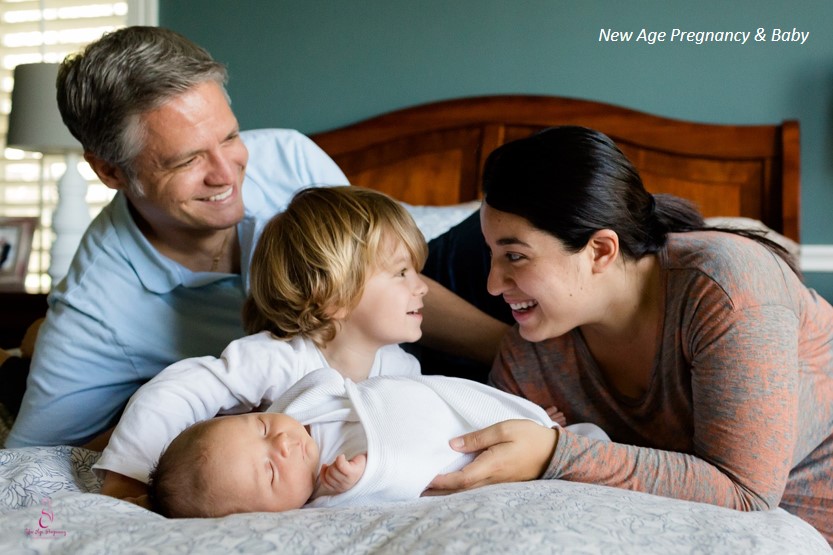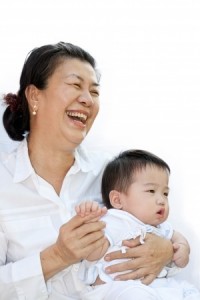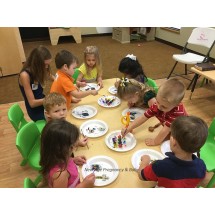
Once we become a parent, there will always be never ending decisions we have to make for our children – from the kind of diapers or formula milk to childcare arrangements and the schools they go. The list can go on.
We worry about almost everything and try our best in our limited capacity to make the best out of what we can in our family. Deciding on childcare arrangements is one of the most commonly heard complaints young parents have when they are pregnant or planning to return to the workforce after their maternity. Though there is no single decision is considered the best option or choice, we hear from two young parents on their reasons for their choice of childcare arrangements.
Mrs Hannah Goh who is 27 years old this year is a full time nurse and a mother to a beautiful one-year-old son, named Timothy. Hannah and her husband were thrilled when they found out that Hannah’s parents were more than willing to care for their children while they work full time.
Assurance for safety and genuine care
Both her husband and Hannah believe that having grandparents to care for Timothy will allow them to have opportunities to bond together. Also, they are more assured to know that Timothy is in good hands and will be well treated and cared for sufficiently such as giving of genuine love and care such as daily hugs and kisses to Timothy, where the teachers at the Child Care may not necessarily be able to do so.
Trust between the grandparents and the couple
On top of that, Hannah and her husband have personally seen how Hannah’s mom manages a group of children of different ages from 1-12 years old, teaching them Sunday school church values and practicing them with the children. As such, there is already built trust in Hannah’s mom to care for Timothy.
Common faith and values
“It really helps to have parents who have the same faith as us, so that we can be assured that Timothy will be raised with the same values as we would like to in our small family.” Hannah finds comfort in knowing that though the parenting styles between herself and her mom may be different, their values in teaching Timothy to love God and to be Christ-like are similar. As such, in situations where she may not agree on how her mom cares for Tim, she would either try to compromise or accommodate, as her mom is after all the main caregiver. Or she would try to voice her concerns and preference respectfully and discuss them with her mom. Most often than not, it helps when her mom is open to receive their opinions and preferences.
Consensus between the couple and both set of grandparents
“I think having a common understanding and consensus between my husband and I is very important as we make this childcare decision together. It does help that Kelvin and I agree without hesitation that our parents will be the best caregivers to Timothy.” It is also important for both set of grandparents to understand and support the couple’s decision in deciding which set of grandparents to care for their children.
Though it can be a tricky journey to come to a decision for both Hannah and her husband, I have personally witnessed how Timothy has grown since birth to date and can testify that it is indeed possible to have a peaceable arrangement like this and that their son can reap the benefits of having a good relationship with his own parents and also both set of his grandparents.
* * * * *
Mrs Adeline Chin, a 25-year-old full time working HR personnel on the other hand prefers placing her one-year-old daughter, Kaylee, into a Child Care Centre (CC). Kaylee is currently in a Child Care Centre that provides Infant Care Services.
“My mom has stayed home to take care of us for at least 18 years since I was 5 and I think that she deserves the break after caring for us for such a long while.” Adeline knew how challenging it was for her mom to have made the sacrifice to stay home to care of her and her sister, and so she really wants her to enjoy her time now with her friends and enjoy Kaylee as her grandmother. Her in-laws on the other hand, did offer to care for Kaylee but as they are living in Malaysia, both Adeline and her husband declined the offer. They shared that they didn’t want to be weekend parents to Kaylee. “If we do leave Kaylee with them, it means that we can only see Kaylee once a week over the weekends and we didn’t like that idea.”

Nannies verses Child Care Centres (CCs)
Adeline finds that nannies may not be professionally trained or certified to care for their children, and also because they are not monitored or accountable to anyone. As a mom, she is concerned about Kaylee’s safety and also her mental and social well-being. She is also concerned with the amount of quality social play that Kaylee gets during her child care sessions. “The nannies are based in their houses, I wouldn’t be able to monitor them like how I can just drop by the centre to take a sneak peek at how Kaylee is from the windows. Also I wouldn’t know if the nanny would provide social play with Kaylee or turn on the television the whole day to entertain her.”
To add on, the costs of employing a nanny is actually not a lot cheaper than putting her child in school. She mentioned that the cost of employing nannies would cost minimally about $800 per month, as compared to paying only S$700 after subsidy for placing Kaylee in Infant Care.
Assurance for safety and care: Recognized Qualifications
The teachers in the CCs in Singapore will require to have certifications such as diplomas or degree in early childhood. Also, teachers who works in the Infant Cares are required to have an additional certification to manage babies at the infant and toddler stages of below 18 months old. With the standard of training that each of these teachers have, it gives parents an added assurance that their children will be will taken care of. However, many parents as seen on the forums have also shared about their concern about the character of the teachers in the different centres. Many parents like Adeline will do their homework thoroughly before delivery, to seek out reviews of the centres that may be nearby their homes, through forums or word-of-mouth before they make a visit or call to the centres to put their child’s name on the waiting list. Adeline shares that most centres allow parents to sit in to observe the sessions and curriculum in the first three days of a child’s entry into the centre.
A few of the prerequisites that a parent will note for a centre are as follows:
1. Cleanliness and hygiene
2. Character of the teachers and Principal
3. Level of control and patience of the teachers
4. Methods of discipline
5. Daily and weekly time-table for the children
6. Amount of curriculum or activities for the week during their stay in the centres
7. The quality of activities – if it is academic based or character building or both
8. Ratio of teachers to children
Open accountability
As the Ministry of Social and Family Development (MSF) licenses child care centres according to the standards stipulated in the Child Care Centres Act and Regulations, parents find that there is more accountability to put their children into Child Care Centres. As most Child care centres provide half-day and/or full-day care programmes to meet the diverse needs of working parents. Some centres also provide flexible care programmes and emergency care services, and even before-and-after school care programmes for children up to the age of 14.
Adeline shares that there are also Closed-circuit television (CCTV) installed in the CCs where the daily activities are recorded in case anything happens within the compound. Also she knows that she can approach MFS should she has any concerns with the CC that may require MFS’s attention such as mishandling of the children or their safety concerns. In short, the CC is accountable to MFS.
Varied learn-through-play activities and programmes, organized curriculum
On top of the structured time-table that each CCs would provide for the children such as standard meal times and nap times, the CCs would also provide learn-through-play activities for the children during their activity time such as playing with toys, drawing and colouring, singing sessions and learning of alphabets, colours and animals, to name a few.
Adeline finds that having such activities keep Kaylee meaningfully engaged and intellectually challenged, something which she finds that nannies or grandparents may not be able to do so as there will not be other children to interact with her. She also noticed that Kaylee learns faster as she is exposed to new words and skills on a daily basis as she interacts with the teachers and other children.
“Surely there are also good nannies or other caregivers who have professional and certified skills to care for our children, but it is challenging to find one. And even if I do find one, my concern will still be accountability and growth of my child”, Adeline shares.
Safe guarding of relationships with their grandparents
Sometimes choosing to place our children at a centre than our parents is one of the ways to show that we treasure the relationships with our parents. There may be families who have existing conflicts or differing values and parenting styles that may worsen the relationships. For such a case, the parents may find it best to find alternative care giving solutions.
I personally find that it can be challenging to voice to our parents how we wish our children are to be brought up if they are the main caregivers. I do respect my parents yet I would also like to implement values that my husband and I have agreed in our family, so that our own children can learn these good values too. But it would be unfair for our parents to abide by them if it is not something that they are naturally doing in their daily routine.
Consensus between the couple and comfort level for care giving arrangements
In short, Adeline advises to parents that it is ultimately what the couple is comfortable with and the decision must be agreeable between the couple. Whichever decision one makes will be the best decision that a parent can give to their children based on their current external circumstances, values and comfort level.
Search for a childcare Centre at ECDA’s Child Care Link here.
By Yvonne Chee






